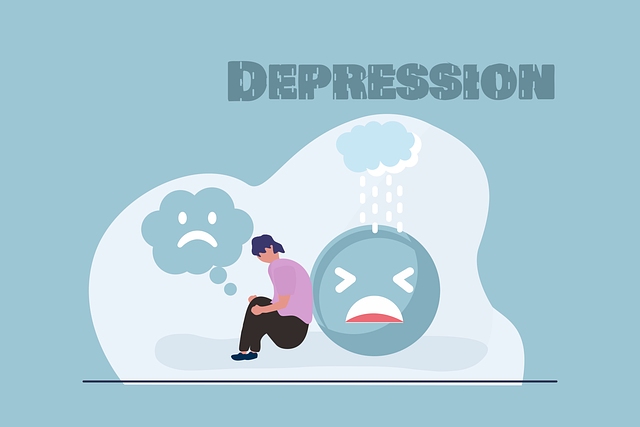Burnout among healthcare providers in diverse Colorado Springs communities, particularly those offering Colorado Springs Spanish Speaking Therapy, is exacerbated by language barriers and demanding work conditions. To combat this, a multi-faceted approach focusing on therapeutic journaling, self-care routines, effective communication strategies, accessibility through translators, peer support networks, crisis intervention guidance, mindfulness meditation, continuous learning, and work-life balance is crucial. These initiatives aim to reduce stress, enhance job satisfaction, foster a supportive environment, and improve both therapist and patient experiences in Colorado Springs Spanish Speaking Therapy.
Healthcare provider burnout is a growing concern, especially in dynamic cities like Colorado Springs. This article explores targeted strategies to prevent burnout among healthcare workers, focusing on the unique challenges faced by Spanish-speaking therapists in the region. We delve into creating supportive environments, implementing self-care practices, and fostering professional growth while maintaining work-life balance. By examining these aspects, we aim to provide a comprehensive guide to enhancing well-being and job satisfaction for healthcare providers in Colorado Springs, with a specific emphasis on Spanish-speaking therapy services.
- Understanding Burnout Among Healthcare Providers in Colorado Springs
- Creating a Supportive Environment for Spanish-Speaking Therapists
- Implementing Effective Self-Care Practices
- Fostering Professional Growth and Work-Life Balance
Understanding Burnout Among Healthcare Providers in Colorado Springs

In Colorado Springs, burnout among healthcare providers is a growing concern, particularly within a diverse community with a significant Spanish-speaking population. The demanding nature of the work, coupled with language barriers and cultural differences in some cases, can exacerbate stress levels and contribute to higher rates of burnout. Many healthcare professionals, especially those offering Colorado Springs Spanish Speaking Therapy, find themselves caught in a cycle of long working hours, heavy patient loads, and limited resources, all of which can negatively impact their mental wellness.
Addressing this issue requires a multifaceted approach. Implementing Mental Wellness Journaling Exercise Guidance for healthcare providers can offer a therapeutic outlet to process emotions, reduce stress, and foster self-awareness. Additionally, encouraging regular Self-Care Routine Development for Better Mental Health is vital. Effective communication strategies among colleagues, administrators, and patients can also alleviate pressure, enhance job satisfaction, and contribute to a more supportive work environment.
Creating a Supportive Environment for Spanish-Speaking Therapists

In Colorado Springs Spanish speaking therapy circles, fostering a supportive environment is paramount to preventing burnout among therapists who serve diverse linguistic communities. Many therapists face unique challenges, including cultural barriers and language gaps, which can lead to increased stress and emotional fatigue over time. Creating a welcoming and inclusive atmosphere where therapists feel valued and understood is key. This involves not only ensuring accessibility through translators and culturally sensitive materials but also promoting peer support networks where therapists can share experiences, offer advice, and engage in self-care practices tailored to their specific needs.
Integrating crisis intervention guidance into the fabric of this supportive environment is essential. Therapists should have access to resources and training that equip them to handle cultural crises and emotional setbacks effectively. Moreover, compassion cultivation practices—such as mindfulness exercises and empathy-building workshops—can enhance therapists’ resilience, allowing them to better serve their Spanish-speaking clients while maintaining a healthy work-life balance. Such initiatives not only prevent burnout but also enrich the therapeutic experience for both therapists and their patients.
Implementing Effective Self-Care Practices

Implementing effective self-care practices is a vital strategy to combat burnout among healthcare providers, especially in bustling urban centers like Colorado Springs. Spanish speaking therapy, tailored to meet the unique needs of diverse communities, plays a crucial role in this endeavor. Therapists who incorporate mindfulness meditation techniques into their sessions not only enhance the patient experience but also engage in essential self-care. This practice allows them to cultivate awareness, reduce stress, and improve overall well-being.
Additionally, crisis intervention guidance can be integrated into daily routines to build resilience against burnout. Confidence-boosting activities, such as regular exercise and healthy eating habits, are equally important. These strategies empower healthcare providers to maintain their mental fortitude, ensuring they can continue offering exceptional care without burning out.
Fostering Professional Growth and Work-Life Balance

In the high-pressure environment of healthcare, particularly within Colorado Springs Spanish speaking therapy settings, fostering professional growth and work-life balance is paramount to preventing burnout. Therapists require continuous opportunities for learning and skill development, not only to enhance their clinical practice but also to maintain a sense of purpose and motivation. This includes engaging in confidence-boosting activities that promote self-care, such as mindfulness meditation, which has been scientifically proven to reduce stress and improve overall well-being. By integrating practices like mindfulness into daily routines, therapists can cultivate emotional resilience and better manage the demands of their profession.
Moreover, achieving a healthy work-life balance is essential for maintaining cultural sensitivity in mental healthcare practice. This involves creating flexible schedules that accommodate personal commitments while ensuring adequate time for professional development. Cultural sensitivity training, which is particularly relevant in diverse communities like Colorado Springs, equips therapists with the skills to navigate complex ethical and communication challenges arising from differences in background, beliefs, and experiences. Incorporating these strategies into daily life not only prevents burnout but also strengthens the therapeutic bond between therapist and client, ultimately improving patient outcomes.
Burnout among healthcare providers is a pressing issue, but through proactive strategies, such as creating supportive environments for Spanish-speaking therapists, implementing self-care practices, and fostering professional growth with a focus on work-life balance, we can mitigate this problem in Colorado Springs. By prioritizing these measures, healthcare organizations can improve retention rates, enhance patient care, and create a more sustainable and fulfilling work environment for all staff, especially those providing Spanish speaking therapy services.














